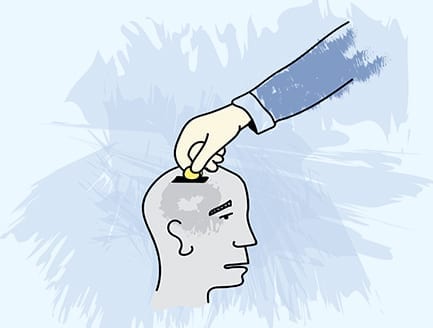Fridays for Future resumes after summer of extreme heat, drought

Youth-led movement
On September 24, the Fridays for Future protest resumed after a brief hiatus due to COVID-19 restrictions. The protest is a global event that champions justice for the environment and brings people together to hold our government accountable to the 2015 Paris Accord. It began back in 2018, and it was initiated by a then-15-year-old Greta Thunberg, the now world-famous environmentalist. They are largely youth-led events that include young people who might not be eligible to vote yet, but want a way to voice their concerns about the on-going climate crisis.
In Regina, Mac Findley, who is one of the youth-organizers of Fridays for Future, spoke with the Carillon about his involvement in the movement.
He said, “I wanted to see what it was like, so I went and I was really inspired. There were over like, 500 people at the first strike I went to and then I went to the one on the 27 of September 2019, and there was, I believe, an estimated 1,000 people at that one, and I knew I wanted to get involved right away.”
Ever since, Findley says he and other youth organizers have been working hard over the time off to put on future events. He’s especially happy with the turnout of young people and students at the legislature.
Findley said, “I think it was definitely so amazing to see such strong support from the community and students like high school students and university students. After so long, you know, we didn’t know exactly how many people would come, but there was a strong show of support.”
Overall, Findley feels like the Fridays for Future group has a lot to be proud of and he thinks the people who show up are the ones to thank for that. In his eyes, they have accomplished a great deal in the time they have been at it. He said, “in terms of accomplishments, we’ve definitely won. I think we feel confident that we’ve made people bring awareness into the community around the issue of climate change, but that’s in large part to the people who choose to come out to the strikes. That’s what makes them successful and that’s what gets the attention of public, political leaders in Saskatchewan, and the media.”
The non-partisan group welcomes and encourages politicians to come to the events. They’ve had politicians attending and have been able to create a discussion with them regarding climate change and immediate action. Findley said, “we want any government that’s in a position of power to act based on science, and we’ve had some good dialogues. In the future, we hope to have really put pressure or to see some of our demands implemented more boldly, but we’ve been pleased with the dialogue that we’ve been able to have.”
While Findley is pleased with the dialogue, he is still insistent on pushing for more action from the government. According to Findley, Fridays for Future has three main demands they want the government to hear and put to action immediately. They are aware the Saskatchewan government has a climate change strategy called “Prairie Resilience” that aims to reduce emission, but Fridays for Future believes that this goal is not enough to meet the Paris Accord.
Findley said, “every nation in the world has to reduce their emissions by at least 45 per cent [sic] below the 2010 levels by 2030. So, we are calling on the government to remake their climate plan to introduce this target. We’re also asking the government to remake their strategy alongside Indigenous communities in Saskatchewan, support Indigenous-led conservation, and ensure that all the solutions needed to tackle the issue of climate change are based around Indigenous knowledge systems alongside science.”
Another call to action the group of environmentalists wants is for the government to have a concrete plan for workers who are currently in the fossil fuel industry who need to transfer over into a green/renewable industry.
In a closing statement from Findley, he spoke about the challenges Fridays for Future faces in Saskatchewan. He indicated that action needs to be taken as soon as possible because it is not only a problem of the future, it is now an issue of the present. He said, “as we know, climate change is impacting all of us around the world, and has impacted Canada drastically this past year. To mention the wildfires in British Columbia, extreme heat waves, and impacts devastating communities. So, the struggle is that the action still needs to be taken.”
URSU President, Hannah Tait, attended the climate strike and shared a few of her thoughts with the Carillon. She said, “I was really glad to see a lot of students, a lot of student leaders there and a lot of the older community, but what was interesting was there is only one MLA there.” Overall, Tait thought there was a good turnout from high schoolers and found the event inspiring.
Tait expressed that she has spoken with the new U of R President, Dr. Jeff Keshen, and is hopeful about the environmental possibilities they can accomplish on campus together.
Tait said, “in my conversations with the new president, Dr. Keshen, I have gotten the sense that this is a priority for him, but I do have to admit he’s new, so I guess we’ll see. And URSU has been working on some of our own sustainability initiatives.” Some of the projects she mentioned are the community garden, community fridge, and getting recycling bins to the students in residence.
The Fridays for Future Facebook page is where information on upcoming events and anything regarding the events can be found.








